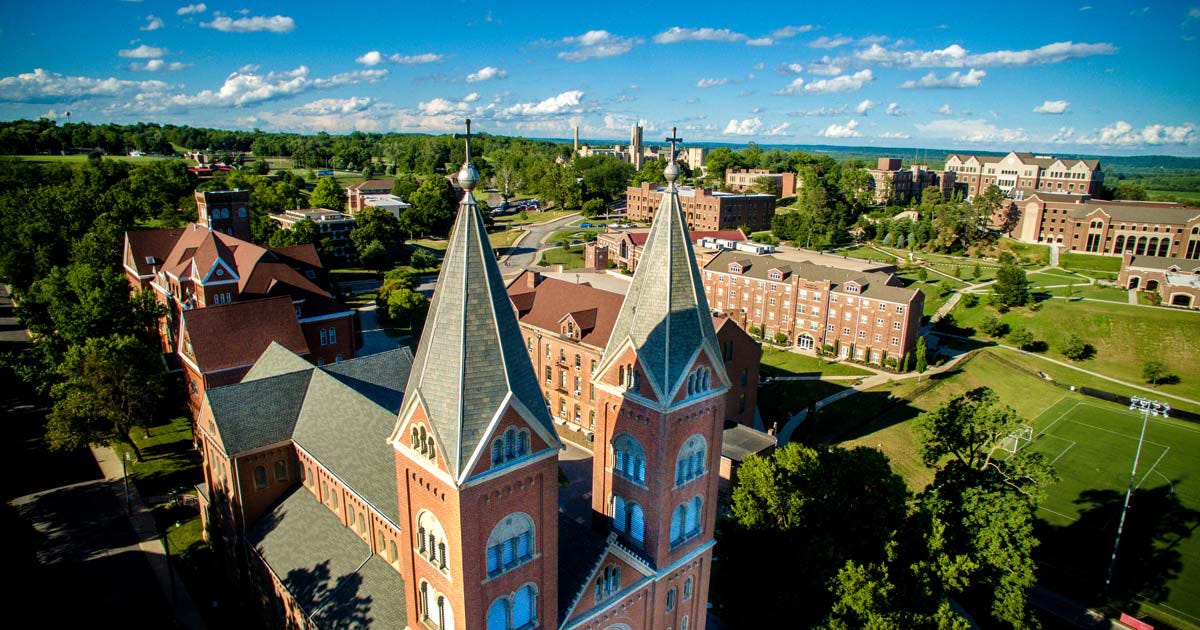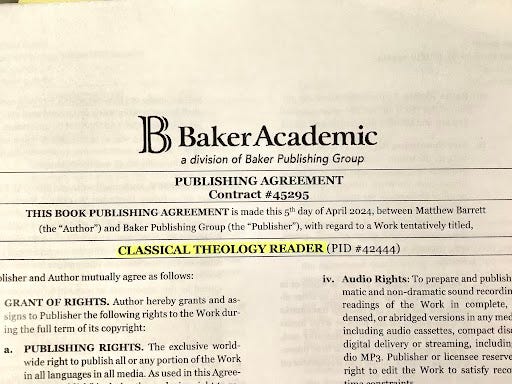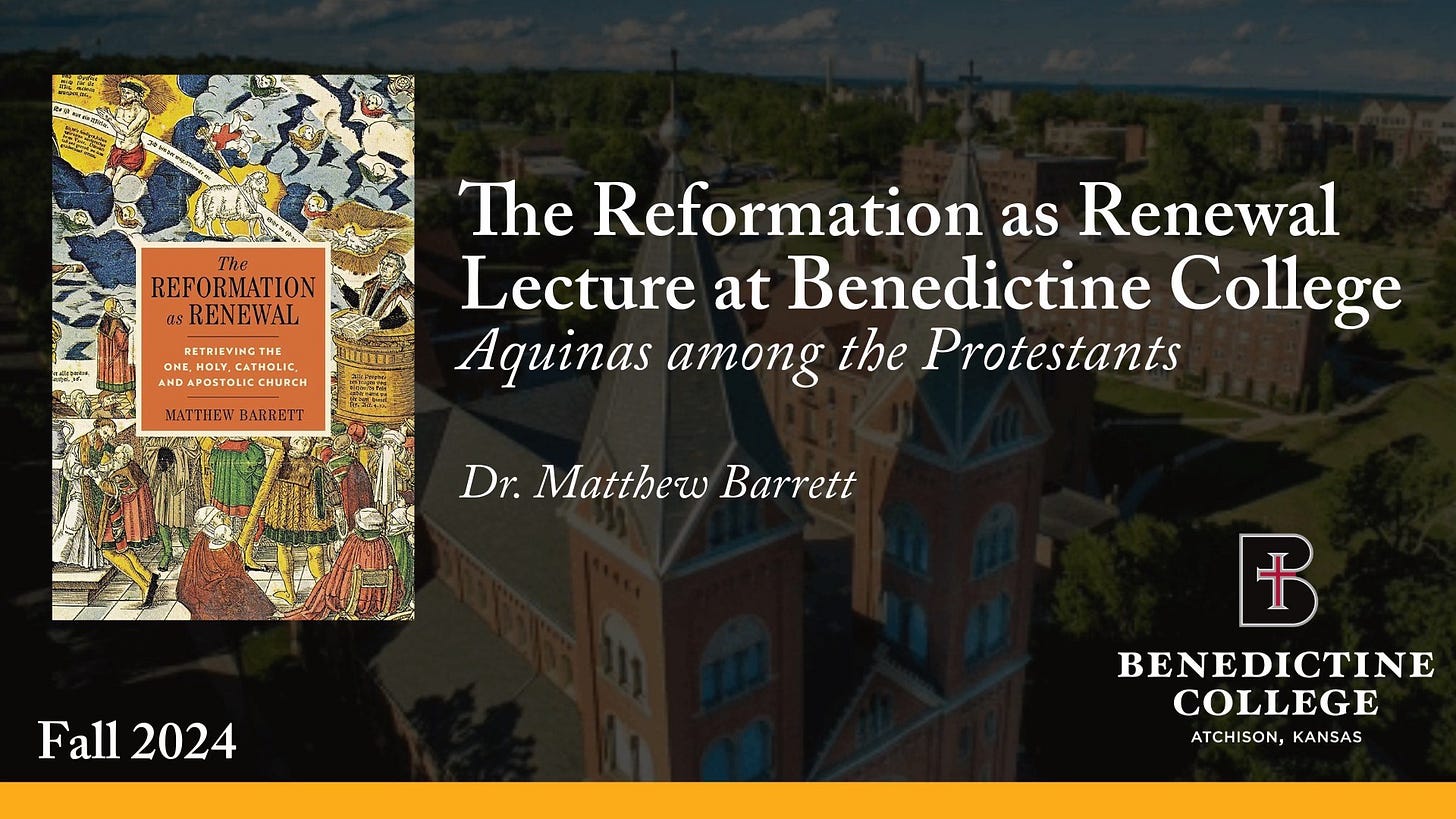Imagine reading the chapter in a systematic theology on the image of God and the author is referring to what the church fathers said about the existence of the soul after death. In fact, he even cites Gregory of Nyssa’s book, On the Human Image of God. And you think to yourself, “If only I could read some of the church fathers for myself, I might understand this systematic theology better.”
That is the world of systematic theology we’ve been living in for some time. Already the student has it hard enough. They are not the specialist. They either don’t have access to the sources, or they don’t know how to find them, and in some case their interest level is not high enough to go through all the work to discover them in the first place. The situation we have on our hands only serves to perpetuate our unfamiliarity with the Great Tradition (how many seminary students graduate, and they’ve never really sat down with a Gregory or Bernard or Calvin?). And I haven’t even mentioned yet the longstanding ideological mistrust towards classical theology that accompanies this pedagogical predicament, making the primary sources themselves irrelevant at best or suspicious at worse to real theology today.
In the past I have told myself I can’t “change the world” but I can change my classroom. And so my students are used to getting a syllabus loaded with very few contemporary books and a whole lot of old books, the type that C.S. Lewis loved most, convinced as he was that they could keep the “clean sea breeze of the centuries blowing through our minds.”
But what if we could put a reader into the hands of a professor and his students, and not just any reader but a reader in classical theology? And what if this reader accompanied a systematic theology that itself retrieved classical theism by engaging with the primary sources? That’s exactly what I am so enthused about this summer. As you know I am writing a systematic theology (and I must say I am enjoying this adventure a lot more than I should as far as writing textbooks go). But my editor at Baker Academic said, “Wouldn’t it be best if the student had a reader so that they could read Athanasius himself when they arrive at your chapter on the incarnation?” As you can imagine, I did not put up much of a fight. “Absolutely!”, I responded. And like that, a reader was born. So someday when you pick up my systematic theology you will have a classical reader to go with it. And the chapters in the reader will be organized doctrinally too, which means if you are reading the chapter on the proofs of God’s existence in my systematic you can expect to find a corresponding chapter in the reader with entries by Anselm and Aquinas and so many others.
But it gets better yet: this reader is one you could read even without the systematic. I hope it will be that helpful. So, if you are just starting out on the path of classical theology and you don’t know where to begin, you will have a reader at your fingertips. No, it’s not meant to do everything. I still plan to assign a few books from the Great Tradition that I want my students to read from start to finish. But let’s face it, they cannot do that with every book from the past, which is where the reader will come in. And yes, every reader is different, some giving short excerpts and some long ones. I’m still working out the details, but I like giving students context if possible, which means I will be more selective in order to give a longer excerpt from Bonaventure, for example (think a page or two or maybe even three or four, as opposed to just a mere paragraph).
And here’s something more appealing still: even if your first love is not systematics (though I can’t imagine how that’s possible), even if you love church history or historical theology for example, this reader is still for you. For no matter what your area of interest, classical theology is for everyone: church planters, ethicists, missionaries, budding historians, K-12 classical school humanities teachers, etc. In the end, “systematics” has no monopoly on classical theology. Remember, classical theology just is Christianity. Historic Christianity at least.
But as for systematics, well, it’s for you most of all. For I am convinced C.S. Lewis was right: “This mistaken preference for the modern books and this shyness of the old ones is nowhere more rampant than in theology.” And if systematics is the queen of the science, then we must do our part to change course. This reader, I pray, is one small step in that direction.
Are you as excited about the reader as I am? If not, I hope you will be when you see it. In the meantime, what else have I been up to?
I call your attention to a significant moment in the life of the Southern Baptist Convention. Next week four Southern Baptists, Andrew Brown, Stephen Lorance, Steve McKinion, and Malcolm Yarnell, will move that the Messengers amend the BFM with the article, “The Creed.” The creed they are referring to is none other than the Nicene Creed and in this Credo essay they provide three reasons why they believe the time to do so is now. May I ask that you pray for these men and please consider supporting this move for the sake of the church.
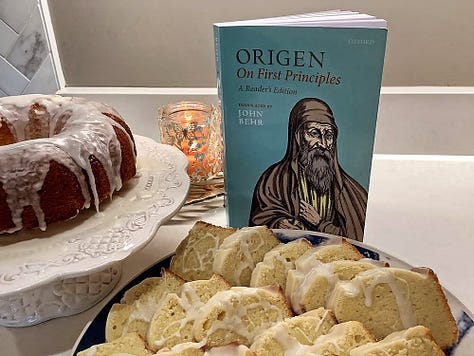
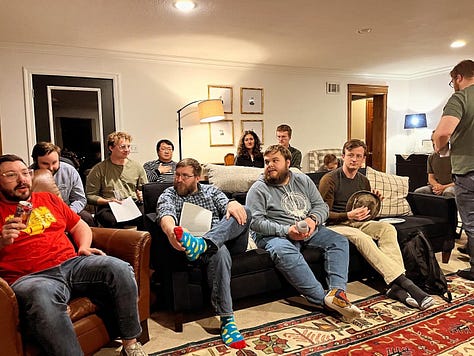
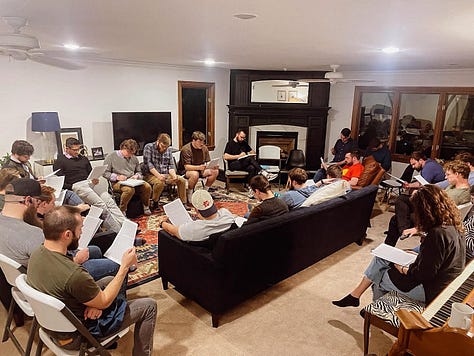
At the last Anselm House I hosted we read Origen out loud together. That’s right, Origen. Is Origen heretic or saint? We moved past caricatures to appreciate Origen’s colossal contribution to Christianity while still evaluating his theory of the soul, however trinitarian his motives. To do that, we read his bit on the Holy Spirit.
I sat down with James Dolezal. As you may know, in The Reformation as Renewal I not only (briefly) introduce Thomas Aquinas but show why the Reformers and the Protestant Scholastics critically appropriated Aquinas. Don’t miss this two-part video conversation where James and I explore this wild terrain. As to be expected, James is rich and robust. As is the new issue of Credo Magazine on Divine Simplicity. Whether you’ve never heard of simplicity before or you’re ready to dig deep, this issue is for you.
You may have heard about Benedictine College in light of Chiefs kicker Harrison Butker and his speech at their graduation ceremony. But did you also know I have been invited to speak to some of their faculty and students about The Reformation as Renewal? I will speak on Aquinas’s place among the Protestants, asking why our Protestant forefathers considered Aquinas the “sounder scholastic” and therefore quite relevant to the challenges of their own day.
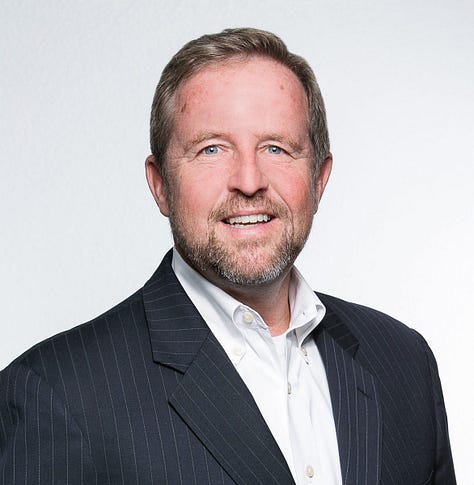
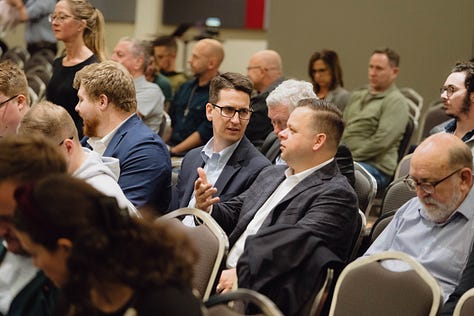
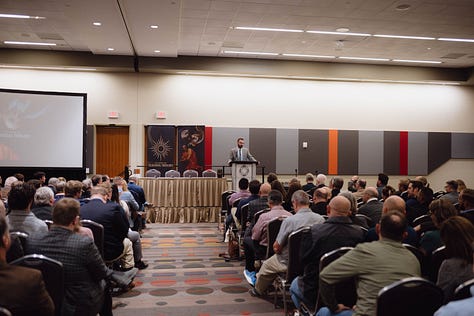
Registration is open (!) for the Center for Classical Theology lecture this November in San Diego. Michael Horton will be delivering this annual lecture, and he has told me to title his lecture, “If Reformed, then catholic: Sola scriptura revisited.” What a time of fellowship with like-minded brothers and sisters this will be. Register here. Tickets sold out last year, so don’t waste time.
But most important of all, my wife and I celebrated 18 years of marriage. She is beautiful. And I love her.


